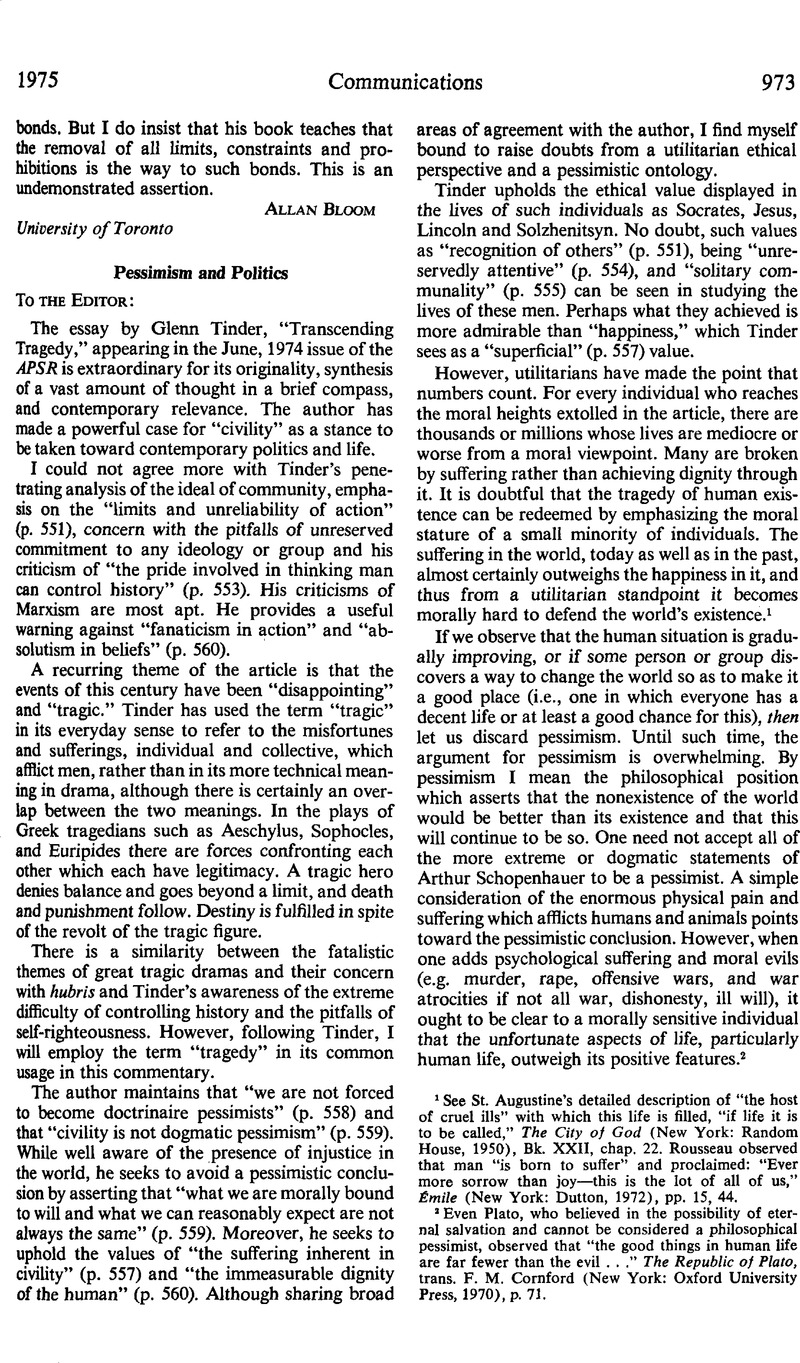No CrossRef data available.
Published online by Cambridge University Press: 01 August 2014

page 973 note 1 See Augustine's, St. detailed description of “the host of cruel ills” with which this life is filled, “if life it is to be called,” The City of God (New York: Random House, 1950), Bk. XXII, chap. 22Google Scholar. Rousseau observed that man “is born to suffer” and proclaimed: “Ever more sorrow than joy–this is the lot of all of us,” Émile (New York: Dutton, 1972), pp. 15, 44 Google Scholar.
page 973 note 2 Even Plato, who believed in the possibility of eternal salvation and cannot be considered a philosophical pessimist, observed that “the good things in human life are far fewer than the evil …” The Republic of Plato, trans. F. M. Cornford (New York: Oxford University Press, 1970), p. 71.
page 974 note 3 Negative utilitarianism explicitly emphasizes giving priority to the relief of suffering over promoting happiness. See Acton, H. B. and Watkins, J. W. N., “Negative Utilitarianism,” The Aristotelian Society, supplementary vol.37 (1963), 83–114 CrossRefGoogle Scholar.
page 974 note 4 Rousseau, , Émile, p. 44 Google Scholar. For another expression of this view see Schopenhauer, Arthur, “On the Sufferings of the World,” in The Pessimist's Handbook, ed. by Barnes, Hazel E. (Lincoln: University of Nebraska Press, 1964), p. 131 Google Scholar. I believe that positive joy is possible but uncommon. The statements of Rousseau and Schopenhauer have great relevance as broad generalizations. Pain and suffering are not only more prevalent than pleasure and happiness; more importantly, they are more intense.
page 974 note 5 Schopenhauer was inclined toward extremes, but many of his arguments for pessimism are worth considering. He claimed: “If you try to imagine, as nearly as you can, what an amount of misery, pain and suffering of every kind the sun shines upon in its course, you will admit that it would be much better if, on the earth as little as on the moon, the sun were able to call forth the phenomena of life; and if, here as there, the surface were still in a crystalline state.” Schopenhauer, “On the Sufferings of the World,” in Barnes, p. 129.
page 974 note 6 Machiavelli's idea that “as a whole, the world remains very much in the same condition, and the good in it always balances the evil” is a plausible expression of the view that overall progress in the human condition is extremely difficult and maybe impossible. Niccolò Machiavelli, The Discourses, introduction to Bk. II.
page 974 note 7 Machiavelli, The Prince, chap. XXI.
Comments
No Comments have been published for this article.